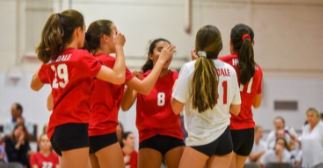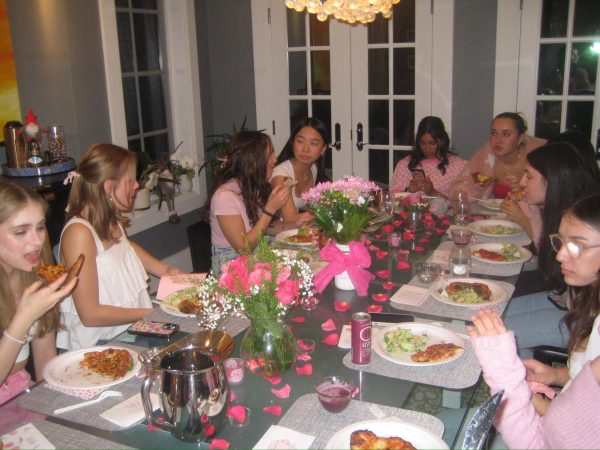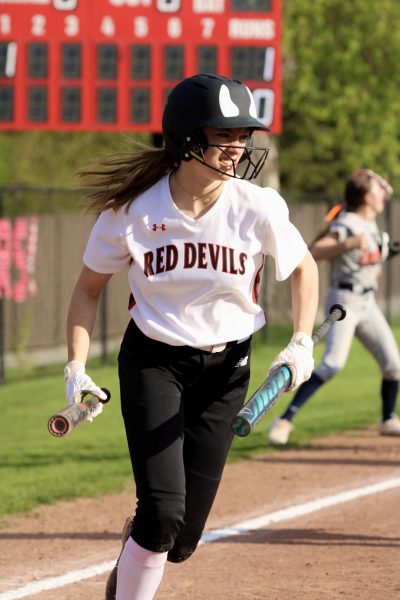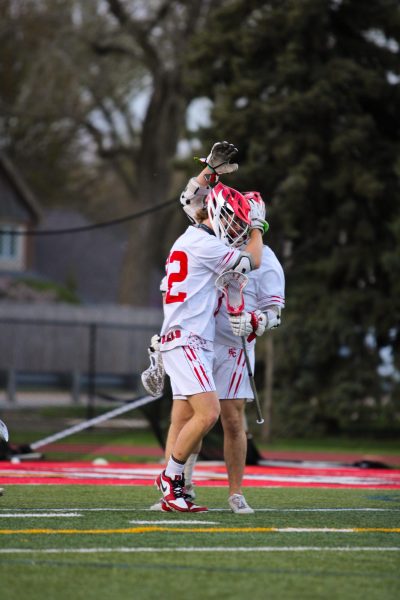Students sort through the aftermath of getting cut from sports

Girls’ volleyball is a cut sport at the school.
With fall sport tryouts happening in August, some students walked away cut from a sport they love. The competitive nature of the athletic program means there are certainly cuts across all sports. But the aftermath for these students leaves them choosing a path of deciding whether to try out again, and dealing with the emotional and mental effects of getting cut.
Getting cut from a team hurts for some time, but there can also be new found interests that emerge from
getting cut, or a newfound determination to take a spot on a team.
A sophomore, who wanted to remain anonymous, said not making the poms team was hard to deal with
initially. The period before tryouts was hard on her mental health because on top of academic work and stress that
comes from it, at night she would have to spend hours practicing routines.
“It was a lot of work for not a lot of reward,” she said.
Getting cut was her ultimate reason behind quitting dance; however, for this student, not making the team made
her realize that dance wasn’t her passion.
According to Assistant Cheer Coach Kimberly Williams, English teacher, the initial feeling of getting cut can be
overwhelming and make one feel hopeless. However, there are still students that come back the year after
getting cut, in an attempt to make the team again.
It depends on the student and their goals for the sport if they want to continue after getting cut. But for the ones that do come back, it might be in their best interest that they are well prepared, because spots get taken quickly by returning players.
One team with tough competition for spots is the cheer team. Recommendations for the athletes are made and taken from coaches and teachers if students have been on the team before, giving previous team members an advantage.
After tryouts, coaches are the ones that have to deal with students’ first responses and emotions to getting cut.
“Usually they cry. When you have your heart set on something it’s hard to handle,” Williams said.
Although, it may be upsetting at first, there are some positive effects that could come out with not making the team.
IIysa Hoffman, social worker at the school, said that while this is a tough moment and initially can be hard to deal with, it is not necessarily bad since it helps students learn to deal with failure. These setbacks can help with overall emotional health, because it teaches students resilience.
“Not making a team can lead to an increase in motivation and effort, help develop self-awareness, and even open up doors to different opportunities or passions,” Hoffman said.
Students cope with not making a team in many different ways, all varying on the person, and what works best for them.
Some of the healthiest ways to handle the setback, according to social workers, would include: taking some time feeling the disappointment, finding a support system to stay positive, and getting involved in other activities at the school to discover new passions, or making a plan for next year’s tryouts.
If students are ever having issues dealing with their emotions after getting cut from a sport and need support, social workers are available to talk.












